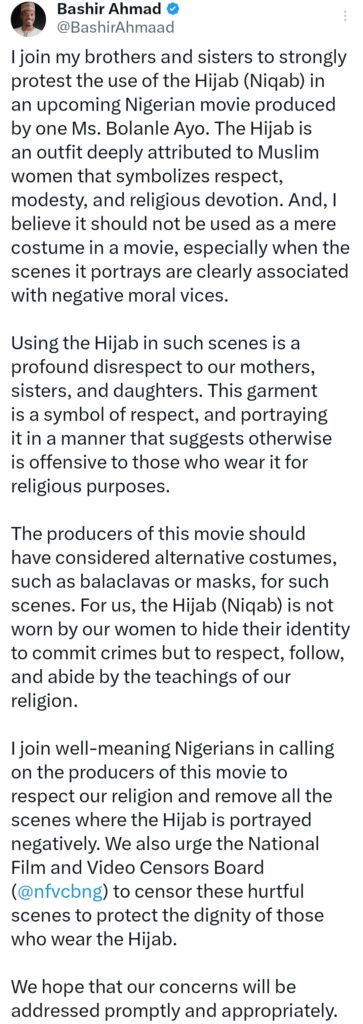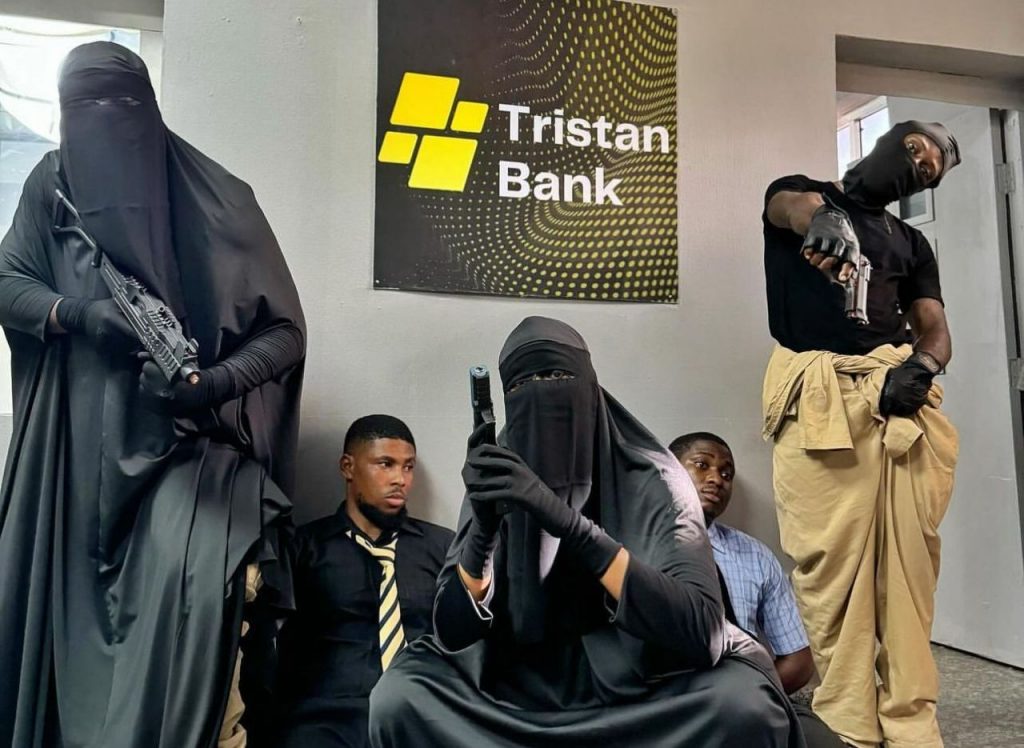A recent movie poster showing Nigerian actresses in niqabs robbing a bank has ignited a significant backlash from the Muslim community in Nigeria. The poster, which was shared on Facebook, has been criticized for portraying Islamic attire in a negative light. Many argue that using niqabs—traditional garments worn by some Muslim women—as disguises for criminal activity is both offensive and misleading.
Latifat Adewunmi Jumah, a Facebook user, expressed her disapproval by stating that the niqab is not meant for concealing one’s identity in a criminal context. She suggested alternative disguises, such as masks, and condemned the film for what she sees as an inappropriate use of religious attire.
Another commenter, Alfa Shehu, accused the filmmakers of hypocrisy and warned that this portrayal could reinforce negative stereotypes about Muslim women.
The Muslim Rights Concern (MURIC) has joined the outcry, describing the film as “satanic” and Islamophobic. They claim that the movie’s depiction of niqabs as associated with criminal behavior is an attempt to malign Muslim women and could incite public prejudice. MURIC has called for an immediate ban on the film and urged the National Film and Video Censors Board to take action.
In response to the controversy, MURIC’s Executive Director, Professor Ishaq Akintola, has asked for calm among Nigerian Muslims, advising them to let the authorities address the issue rather than taking matters into their own hands. He stressed that the portrayal of Islamic attire in a negative context is harmful and goes against the peaceful message of Islam.








